CONNECTING OUR GLOBAL COMMUNITY: Panel Discussion & Book Talk
July 12, 2025 | In-Person & Virtual
Location: Nikkei National Museum & Cultural Centre|6688 Southoaks Crescent Burnaby, British Columbia, Canada
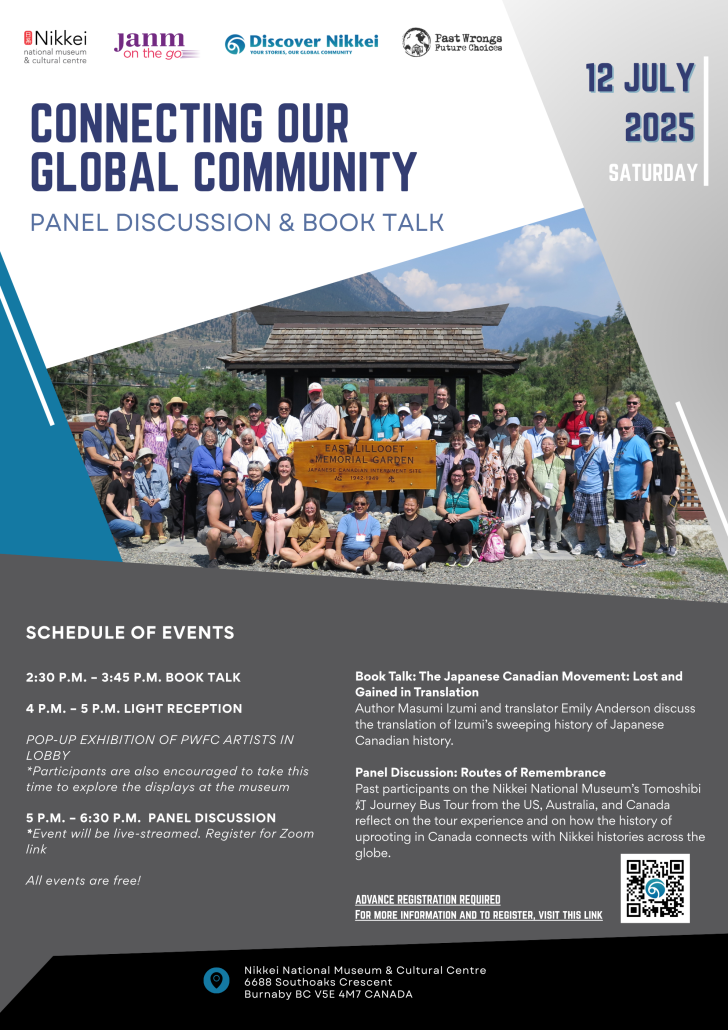
The Nikkei National Museum & Cultural Centre (NNMCC), Past Wrongs, Future Choices, JANM on the Go, and Discover Nikkei are proud to present this afternoon of programming on Japanese Canadian history and remembrance. Join us in Burnaby, British Columbia, for a book talk, reception, and panel discussion. For those outside of British Columbia, the panel discussion will be live-streamed via Zoom.
FREE event, but registration is required for in-person and virtual attendance.
In-person registration
Panel discussion virtual registration
Schedule of Events
Book Talk—The Japanese Canadian Movement: Lost and Gained in Translation
2:30 p.m. – 3:45 p.m.
Join scholars Masumi Izumi of Doshisha University and Emily Anderson of the Japanese American National Museum for a discussion about telling Japanese Canadian history on both sides of the Pacific. As the two work to translate into English Izumi’s sweeping history of Japanese Canadian experience—the most exhaustive study in this area to date—into English, they encounter challenges of language and of vastly different audiences. What is gained, and what lost, in translation?
Light Reception
4 p.m. – 5 p.m.
Enjoy light refreshments and visit a pop-up exhibition featuring Past Wrongs, Future Choices artists. Participants are also encouraged to explore the museum.
Panel Discussion—Routes of Remembrance: A discussion of the Tomoshibi 灯 Journey Bus Tour to Sites of Japanese Canadian Confinement
5 p.m. – 6:30 p.m.
For more than twenty years, the Nikkei National Museum’s Tomoshibi 灯 Journey Bus Tour has travelled to sites of Japanese Canadian incarceration in British Columbia. On these annual trips, people who lived through the ordeal of the 1940s, their descendants, and members of the wider public have learned a history of Canadian injustice and community resilience in the places where incarceration happened.
In recent years, the tour has been enhanced through partnership with Past Wrongs, Future Choices, which invites students, teachers from across Canada, and international educators to join the tour as part of a course at the University of Victoria. Our panel explores what participants have learned in these experiences of history. Why return to places of past harm and trauma?
Join us for a discussion among tour participants from Australia, Canada, and the United States, each reflecting on what the experience taught them, how the history of uprooting in Canada is connected with the injustices suffered by Nikkei civilians across the globe in the 1940s, and what this learning can offer us today.
Meet the Panelists:
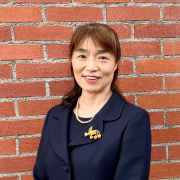
Masumi Izumi (Chair) is a Professor of North American Studies at the Department of Global and Regional Studies and the Director of the International Institute of American Studies at Doshisha University, in Kyoto, Japan. She was a visiting research fellow at the Department of History and the Centre for Global Studies in University of Victoria between September 2022 and March 2023. Masumi co-chairs the Archives Cluster of Past Wrongs Future Choices (PWFC). She is a historian of Japanese American and Japanese Canadian wartime experiences as well as their post-internment community building efforts, and she has been particularly interested in bringing trans-Pacific perspectives into the study of migration. She authored The Rise and Fall of America’s Concentration Camp Law: Civil Liberties Debates from the Internment to McCarthyism and the Radical 1960s(Temple University Press, 2019, Selected in “The Choice Outstanding Academic Titles, 2020”). She also published a comprehensive history of Japanese Canadians 『日系カナダ人の移動と運動―知られざる日本人の越境生活史』 The Japanese Canadian Movement: The Little-Known Trans-Pacific History of Japanese Migration and Activism (Takanashi Shobo, 2020). She is in the process of translating this book into English.
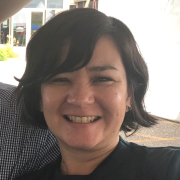 Dr. Emily Anderson is a Curator at the Japanese American National Museum (Los Angeles), and is currently developing an exhibit on food in Japanese American culture. Recent exhibits include Don’t Fence Me In: Coming of Age in America’s Concentration Camps (March – Oct 2023). Others include Sutra and Bible: Faith and the Japanese American World War II Incarceration (February 26, 2022 – February 19, 2023) and Cannibals: Myth and Reality (San Diego Museum of Us, March 2016 – ongoing).
Dr. Emily Anderson is a Curator at the Japanese American National Museum (Los Angeles), and is currently developing an exhibit on food in Japanese American culture. Recent exhibits include Don’t Fence Me In: Coming of Age in America’s Concentration Camps (March – Oct 2023). Others include Sutra and Bible: Faith and the Japanese American World War II Incarceration (February 26, 2022 – February 19, 2023) and Cannibals: Myth and Reality (San Diego Museum of Us, March 2016 – ongoing).
She is also a scholar of religion and empire in Japan, and has published on Christianity in Japan, the Japanese empire, and Japanese immigrants before World War II. Her publications include Christianity in Modern Japan: Empire for God (Bloomsbury, 2014) and Belief and Practice in Imperial Japan and Colonial Korea (Palgrave MacMillan, 2017) as well as articles and book chapters on religion and imperialism in Japan and the Pacific. She holds a PhD in modern Japanese history from UCLA (2010).
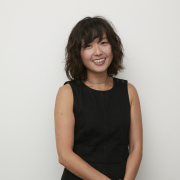 Yuki Kawakami is a creative producer, educator and curator with a background in dance and performance. She currently works at the Art Gallery of New South Wales as a Programs Producer in Education, where she develops initiatives that support critical engagement with art among higher education students.
Yuki Kawakami is a creative producer, educator and curator with a background in dance and performance. She currently works at the Art Gallery of New South Wales as a Programs Producer in Education, where she develops initiatives that support critical engagement with art among higher education students.
She was the Assistant Curator for the Art Gallery’s major exhibition Japan Supernatural (2019), and Creative Producer of its associated Sydney Festival event, Night Parade of 100 Goblins. In 2017, she was awarded the Edmund Capon Fellowship, a staff exchange program with leading museums and art centres in Asia.
Committed to artist-led and community-driven practices, Yuki has previously served as Chair and Co-Director of the artist-run initiative Firstdraft. She is currently undertaking a PhD in Curatorial Practice at Monash University in Melbourne for Past Wrongs, Future Choices and is developing an exhibition that addresses the history and legacy of Japanese civilian internment through collaborations with contemporary artists of Japanese ancestry in Australia.
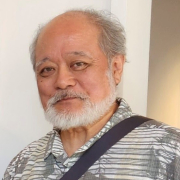
Les Takahashi is a sansei, born, raised and educated in Toronto. He is a retired Humber College teacher where he taught sociology for about 30 years. He joined the Toronto NAJC board in 2020. In retirement, he is trying to develop his own Nikkei networks devoting time at the Japanese Canadian Cultural Centre in Toronto as an archiving volunteer and as a board member of the Toronto NAJC. He and his wife, Gayle, have two adult children and two grandchildren.
Through observation of and reflection on his family’s issei and nisei generations, he has some sense of the cost of discrimination and persecution, which almost achieved cultural genocide. He deliberately refers to this as a “family” experience because one result of wartime persecution was isolation from the broader Nikkei community. Thankfully, Canada’s present social environment has allowed various minority communities to make efforts to recover their heritage. In his own family, this is seen in the yonsei and gosei members who participate in Japanese and Japanese Canadian culture. Meeting people of the Japanese Canadian community has increased his sense of pride and connection. The pride comes from learning more of the history of Japanese Canadian activism and the accomplishments of contemporary community leaders such as scholars, artists, and others.
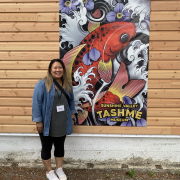 Catherine Oikawa has been an educator with the Durham District School Board in Ontario for over 15 years. Most of her years has been in the intermediate classroom focussing on anti-oppression teaching. She has been a lifelong volunteer within the Japanese Canadian Cultural Centre and is currently serving on the Board of Directors at Momiji Health Care Society.
Catherine Oikawa has been an educator with the Durham District School Board in Ontario for over 15 years. Most of her years has been in the intermediate classroom focussing on anti-oppression teaching. She has been a lifelong volunteer within the Japanese Canadian Cultural Centre and is currently serving on the Board of Directors at Momiji Health Care Society.
This JANM on the Go program is sponsored by the Past Wrongs, Future Choices partnership, the Nikkei National Museum, and Discover Nikkei. Major funding for Discover Nikkei is provided by The Nippon Foundation. The Past Wrongs, Future Choices Canada’s Internment Era Field School is generously supported by the Frank H. Hori Charitable Foundation.

 Instagram
Instagram